 Need holiday gift ideas for your career-aspiring family, friends and co-workers? Your shopping just got easier!
Need holiday gift ideas for your career-aspiring family, friends and co-workers? Your shopping just got easier!
Eight current and former general counsel—all of whom are highly successful lawyers who have been profiled on Evers Legal’s blog—talk about the books that most influenced their lives and careers.
Check out this list of books (in no particular order) that helped to pave the impressive careers of some of the in-house bar’s top lawyers.
Cornell Boggs, Senior Vice President, General Counsel and Corporate Secretary, Dow Corning
“Execution: The Discipline of Getting Things Done” by Larry Bossidy and Ram Charan
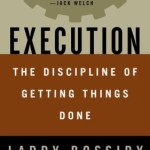 “The book was provided in the context of an executive leadership program. It offered great insight on moving strategy from theory to practice, and wonderful thoughts about leadership and ‘getting things done’ from very well regarded business leaders. The book focused on creating an execution culture within an organization, which is critically important when achieving positive business results.” — Boggs
“The book was provided in the context of an executive leadership program. It offered great insight on moving strategy from theory to practice, and wonderful thoughts about leadership and ‘getting things done’ from very well regarded business leaders. The book focused on creating an execution culture within an organization, which is critically important when achieving positive business results.” — Boggs
Rich Konrath, Vice President and General Counsel, Legal and Compliance, North America; CNH Industrial
While Konrath says he’s not a big reader of career-related books, he does point to several that have provided him insight over the years.
“Only the Paranoid Survive” by Andrew Grove
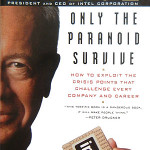 “Despite its ominous title, the book is a very good account of how a passionate pursuit of innovation within every layer of an organization—in this case Andy Grove, former CEO of Intel—drives excellence in your industry and career. Many of Grove’s concepts apply to in-house legal teams: We need to keep innovating in our work, both in how we provide legal services and how we help the business drive its strategy.” — Konrath
“Despite its ominous title, the book is a very good account of how a passionate pursuit of innovation within every layer of an organization—in this case Andy Grove, former CEO of Intel—drives excellence in your industry and career. Many of Grove’s concepts apply to in-house legal teams: We need to keep innovating in our work, both in how we provide legal services and how we help the business drive its strategy.” — Konrath
“Crucial Conversations – Tools for talking when the stakes are high” by Kerry Patterson
“An excellent guide on how critical our words are and the impact a conversation may have on both our business and personal relationships. It struck me how much we all may have lost sight of these themes in our social media/email world. For lawyers, this book is an excellent reminder of the impact of our words on clients, colleagues, and senior management and the means by which we can maximize that impact positively.” — Konrath
“The Wright Brothers” by David McCullough
“In addition to being thoroughly entertaining, this book reminded me of the incredible perseverance of the human spirit when directed toward a goal. The trials and failures the brothers went through to ultimately achieve their goals are inspiring. I think that when, as lawyers, we are faced with what appear to be insurmountable circumstances we should think about the Wright Brothers.”
— Konrath
“Abraham Lincoln” the six volume set by Carl Sandburg (1926)
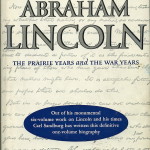 “Much has been written about Abraham Lincoln, but this set details like no other the leadership challenges Lincoln faced in his day-to-day work with his cabinet, advisors, congress and others. The manner in which Lincoln grasped all sides of an argument, interacted with detractors, and then was decisive in his course is inspiring, and the account is so well written by Sandburg.” — Konrath
“Much has been written about Abraham Lincoln, but this set details like no other the leadership challenges Lincoln faced in his day-to-day work with his cabinet, advisors, congress and others. The manner in which Lincoln grasped all sides of an argument, interacted with detractors, and then was decisive in his course is inspiring, and the account is so well written by Sandburg.” — Konrath
Anne Fitzgerald, Chief Legal Officer, Cineplex Entertainment
“The Four Agreements” by Don Miguel Ruiz
“It’s really more about understanding how best to approach the world personally, but came in super handy in managing my team.” — Fitzgerald
“Goals” by Brian Tracy
“A good reminder about planning for the future. Success doesn’t happen personally or professionally without planning for it.” — Fitzgerald
Bonnie Michael, Vice President and General Counsel, U.S. Volvo Financial Services
“Steve Jobs” by Walter Isaacson
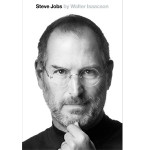 “It’s an example of what not to do. But if you can twist some of the things that Jobs did into a way that isn’t quite as harsh, it can help people realize the best in themselves. I know this book put some people off, but I found it inspiring.” — Michael
“It’s an example of what not to do. But if you can twist some of the things that Jobs did into a way that isn’t quite as harsh, it can help people realize the best in themselves. I know this book put some people off, but I found it inspiring.” — Michael
Michael says she doesn’t have a single most influential book, she believes it’s important to read books that make you think differently and expose you to different perspectives. Three other books that fall into that category for Michael include:
“It’s Your Ship” by D. Michael Abrashoff
“Lean In” by Sheryl Sandberg
“Outliers” by Malcolm Gladwell
Richard Veys, General Counsel, Society of Actuaries
“The 7 Habits of Highly Effective People” by Stephen R. Covey
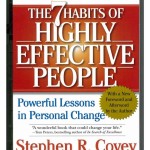 “It’s a book I read many years ago, and it was very influential. I read it at a time when I was already beginning a transition from simply being reactive about career opportunities and aspirations to being more thoughtful about longer-term needs and goals. The principles articulated in the book, such as ‘begin with the end in mind,’ helped coalesce and focus my thinking about both professional and personal growth.” — Veys
“It’s a book I read many years ago, and it was very influential. I read it at a time when I was already beginning a transition from simply being reactive about career opportunities and aspirations to being more thoughtful about longer-term needs and goals. The principles articulated in the book, such as ‘begin with the end in mind,’ helped coalesce and focus my thinking about both professional and personal growth.” — Veys
Meredith Ritchie, General Counsel and Chief Ethics and Compliance Officer, Alliant Credit Union
“Emotional Intelligence” by Daniel Goleman
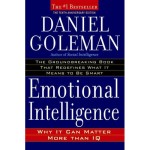 “It’s hard to narrow it down to the best book but this compilation of 10 articles on emotional intelligence is one of Harvard Business Review’s 10 Must Reads.
“It’s hard to narrow it down to the best book but this compilation of 10 articles on emotional intelligence is one of Harvard Business Review’s 10 Must Reads.
“As lawyers, to succeed, we need emotional intelligence and that’s not usually taught in law school. How you receive feedback, handle your emotions, treat people and listen are essential for my job as General Counsel and Chief Ethics and Compliance Officer.” — Ritchie
Wendy Hufford, Vice President, U.S. Litigation, Risk Management & Human Resources, Boehringer Ingelheim
“Winning Teams—Winning Cultures” by Larry Senn and Jim Hart
“I like this book because it helps leaders create healthy, high performance cultures within their teams and organizations that lead to better results, both at home and at work.” — Hufford
Bill Weber, iP2Biz (former GC of Cbeyond)
“Man’s Search for Meaning” by Victor Frankl
Weber says Frankl makes three main points in this book that he found personally important.
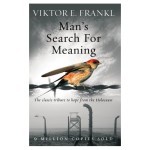 “Freedom is a choice rather than a state of being; even in the worst circumstances you have the freedom to choose what will become of you both mentally and spiritually. Meaning can be found even in grave circumstances. Optimism is the key to finding meaning because it opens doors rather than closing them.
“Freedom is a choice rather than a state of being; even in the worst circumstances you have the freedom to choose what will become of you both mentally and spiritually. Meaning can be found even in grave circumstances. Optimism is the key to finding meaning because it opens doors rather than closing them.
“This is certainly not a conventional choice because absolutely no one would describe this book as offering career advice. But, really, our careers are what we spend much of our lives doing, and any book that helps you get a grip on living a life with meaning is a book that will help you with your career.”
— Weber
